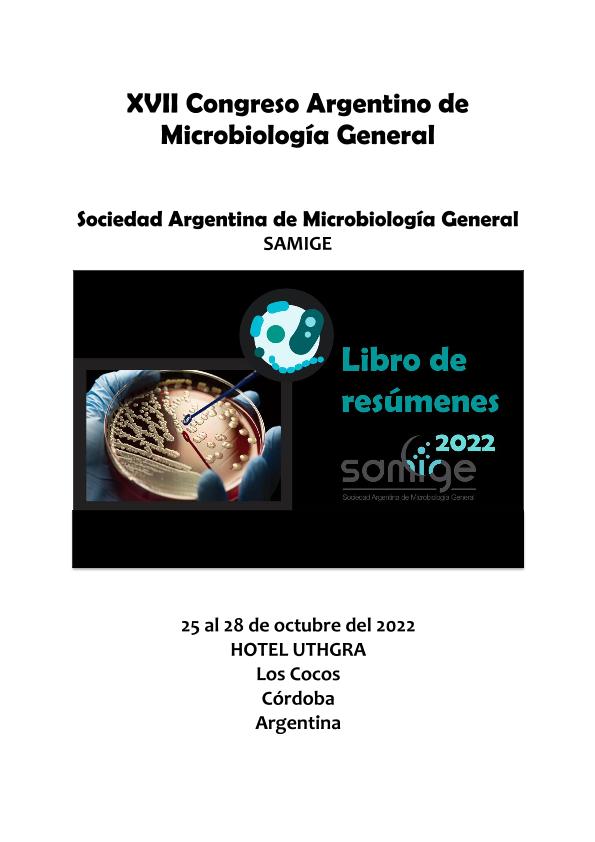Mostrar el registro sencillo del ítem
dc.contributor.author
Benimeli, Claudia Susana

dc.date.available
2023-06-21T17:32:14Z
dc.date.issued
2022
dc.identifier.citation
Biobeds: a sustainable alternative to reduce point-source pesticides pollution; XVII Congreso Argentino de Microbiología General; Los Cocos; Argentina; 2022; 35-35
dc.identifier.uri
http://hdl.handle.net/11336/201034
dc.description.abstract
Pesticides are among the most employed organic compounds worldwide and play an important role in modern agriculture and food production. However, their inadequate management can lead to contamination of soil, surface, and groundwater. In the last decades, point-source pesticides pollution has been rigorously addressed, through the evaluation and implementation of bioprophylaxis strategies, in order to reduce or avoid these environmental impacts. For this purpose, biobeds (BB), initially developed in Sweden, are among the most promising technologies. They consist of a simple, ecological and cost-effective construction designed to retain and degrade pesticides, with three main components: a clay layer, a biomixture and a grass layer that covers the surface. Biomixture (BM) represents the biologically active part of a BB, where the adsorption and degradation of pesticides take place. It is composed of a lignocellulosic substrate, a humic rich component and a soil; each component plays an important role in the pesticides dissipation. However, the design of a BM should be adapted to each region and will depend on the availability of the materials. Also, the adequate efficiency of the BM can be improved by bioaugmentation with microorganisms with specific degrading capacities. Among a wide range of microorganisms, actinobacteria play an important ecological role in the environment due to their ability to remove a large diversity of xenobiotic compounds.Based on the above, this conference will present studies related to the behavior of BM formulated with different kind of soils and locally available by-products derived from the sugarcane industry in Argentina, and the effect of their bioaugmentation with autochthonous actinobacteria, on the pesticides removal ability. In a first stage, the performance of biomixtures formulated with a byproduct derived from a local industry (bagasse) and soils of different textures, and the effect of the bioaugmentation with a consortium of actinobacteria and fungi, on their lindane removal capacity was evaluated. As result of this preliminary work, silty loam soil was selected as the most efficient for formulating a BM.Then, the removal of atrazine (ATZ) was evaluated in BM formulated with three sugarcane by-products as alternative lignocellulosic substrates. Also, the effect of the bioaugmentation with actinobacteria was evaluated as a strategy to enhance the depuration capacity of BM. BM formulated with bagasse, filter cake, or harvest residue, reached ATZ removal of 37–41% at 28 d of incubation, with t1/2 between 37.9 and 52.3 d. The bioaugmentation with Streptomyces sp. M7 accelerated the dissipation of the pesticide in the BM, reducing ATZ t1/2 regarding the controls, and achieved up to 72% of ATZ removal. The bioaugmentation improved the development of the microbiota in BM, specially actinobacteria and fungi and enhanced acid phosphatase activity and/or reversed a possible effect of ATZ over this enzymatic activity.
dc.format
application/pdf
dc.language.iso
eng
dc.publisher
Sociedad Argentina de Microbiología General
dc.rights
info:eu-repo/semantics/openAccess
dc.rights.uri
https://creativecommons.org/licenses/by-nc-sa/2.5/ar/
dc.subject
BIOBEDS
dc.subject
PESTICIDES
dc.subject
ACTINOBACTERIA
dc.subject
BIOMIXEDS
dc.subject.classification
Biotecnología Medioambiental

dc.subject.classification
Biotecnología del Medio Ambiente

dc.subject.classification
INGENIERÍAS Y TECNOLOGÍAS

dc.title
Biobeds: a sustainable alternative to reduce point-source pesticides pollution
dc.type
info:eu-repo/semantics/publishedVersion
dc.type
info:eu-repo/semantics/conferenceObject
dc.type
info:ar-repo/semantics/documento de conferencia
dc.date.updated
2023-06-16T12:45:38Z
dc.journal.pagination
35-35
dc.journal.pais
Argentina

dc.description.fil
Fil: Benimeli, Claudia Susana. Consejo Nacional de Investigaciones Científicas y Técnicas. Centro Científico Tecnológico Conicet - Tucumán. Planta Piloto de Procesos Industriales Microbiológicos; Argentina. Universidad Nacional de Catamarca. Facultad de Ciencias Exactas y Naturales; Argentina
dc.relation.alternativeid
info:eu-repo/semantics/altIdentifier/url/https://samige.org.ar/wp-content/uploads/2022/10/Libro-de-Resumenes-SAMIGE-2022_final.pdf
dc.conicet.rol
Autor

dc.coverage
Nacional
dc.type.subtype
Congreso
dc.description.nombreEvento
XVII Congreso Argentino de Microbiología General
dc.date.evento
2022-10-25
dc.description.ciudadEvento
Los Cocos
dc.description.paisEvento
Argentina

dc.type.publicacion
Book
dc.description.institucionOrganizadora
Sociedad Argentina de Microbiología General
dc.source.libro
Libro de Resúmenes del XVII Congreso Argentino de Microbiología General
dc.date.eventoHasta
2022-10-28
dc.type
Congreso
Archivos asociados
